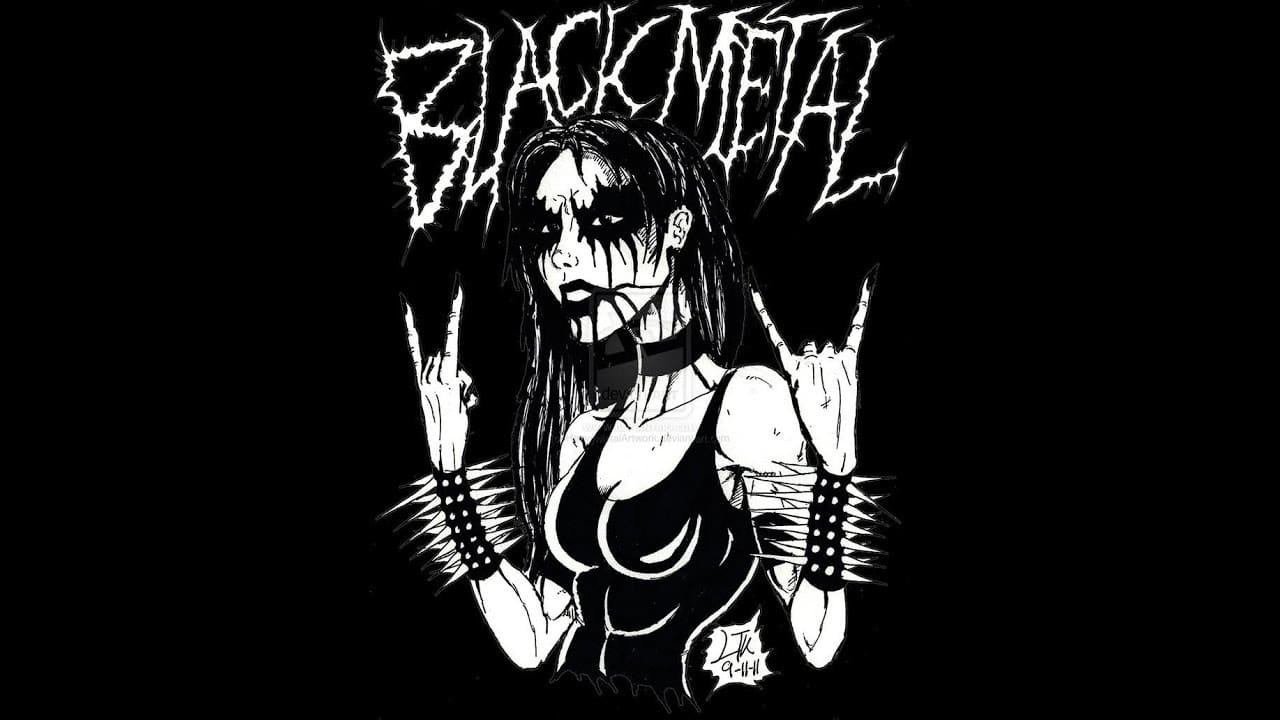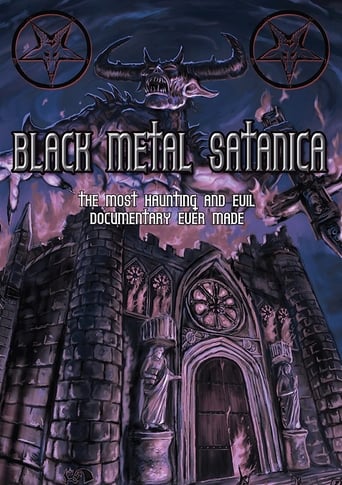

This documentary promised initially to be a fairly in-depth investigation of the Scandinavian black metal music scene and its agenda and for the first half hour "Black Metal Satanica" did entertain with a pleasing mix of band interviews, music and historical archive material. Over the rest of its 80-minute course though the film deteriorated into an unfocused parade of interviews which suggests director Lundberg lost control of the project and let the musicians he interviewed take over. I was quite disappointed at how the film turned out as the mostly Swedish interviewees were well-spoken, polite and thoughtful, and offered interesting insights into the general tenor of the scene and their own motivations for joining it; they gave the impression of being able to answer almost any challenging and provocative questions Lundberg could have put to them. The film also offers snapshots of very interesting and often expressionistic black metal film clips and energetic concert footage. The mostly black metal music soundtrack which also features a little ambient music and even some Christian church choral music in parts runs throughout the film and gives it an energetic and aggressive ambiance though it is never intrusive.The most interesting section of the film is its examination of black metal's opposition to Christianity and how this derives from the history of Christian proselytisation in Scandinavia at the tail-end of the Viking period: in many parts of Norway and Sweden, communities were forced to accept Christianity and baptism under threat of invasion. The film omits to add that temples dedicated to Odin worship were razed and churches built in their stead which would have explained the church burnings that mentioned later on. A link is made between Scandinavia's Viking history and culture on the one hand and black metal on the other in a superficial way: the interviewees talk about self-respect and resisting the Christian influence on current society but there is little about the appeal of Viking values such as individualism, curiosity, an adventurous spirit which drove the Vikings to explore and colonise Iceland, Greenland and parts of North America, self-reliance and a desire to beat the elements, transcend death and be remembered for heroic exploits.After this stirring episode, the film investigates early inspirations like the northern European physical environment and climate, and bands like Bathory, Mayhem and Burzum on black metal generally (no mention of Darkthrone and Emperor?) and delves into various black metal recreations such as grave desecrations, murdering homosexual men, church burnings, studying Anton Szandor LaVey's Satanic Bible, self-mutilation and apocalyptic fantasies. Distinguishing between Norwegian and Swedish BM is non-existent; the credits that introduce each interviewee/s at least could have indicated which country they were from and Lundberg could have asked some Swedish subjects about when and how BM became popular in Sweden. I begin to wonder whether Lundberg is becoming enthralled or overwhelmed by the style of BM rather than its substance. There is plenty substantial that is suggested by the interviewees and the activities covered here which is not covered in much depth: black metal's emphasis on pseudo-Nietzschean elitism, freedom of expression and individuality, and closeness to and concern for nature which lead to a love of land, nationalism and Romanticism (and National Socialist beliefs) which in their turn feed a hatred of humanity, pessimism about the future of the planet and ultimately a desire for an apocalypse or a series of disaster events that will sweep humans away into the dustbin of history and cleanse the Earth.Past the halfway point, the narrator with the irritating American accent drops out and the film becomes a series of the same talking heads covering familiar ground. At one point the topic of Christian black metal (a mostly American sub-genre phenomenon in which BM elements are in the employ of a robust take-no-prisoners Christianity that shoots first before proffering the other cheek) is broached to the interviewees who express surprise and disbelief and for a brief moment the film shows some sparkle. When the closing credits arrive, I realise I didn't learn much from "Black Metal Satanica" that I wasn't already aware of and that there is plenty more Lundberg and his guests could have spoken about. Why does black metal have an elitist point of view rather than an inclusive democratic one? How much influence does Nietzschean philosophy have on the music and the sub-culture that surrounds it? Is that influence a superficial one or are black metal followers aware that to be an Übermensch, one must not only continually test oneself against insuperable odds but welcome such tests joyfully? Black Metal Satanica? - not very much so as it turns out: the film serves best as an introduction for viewers not familiar with BM who moreover will have to do some extra homework on the BM agenda if they want to understand it fully.
... View More